by Lily Janiak | February 16, 2019
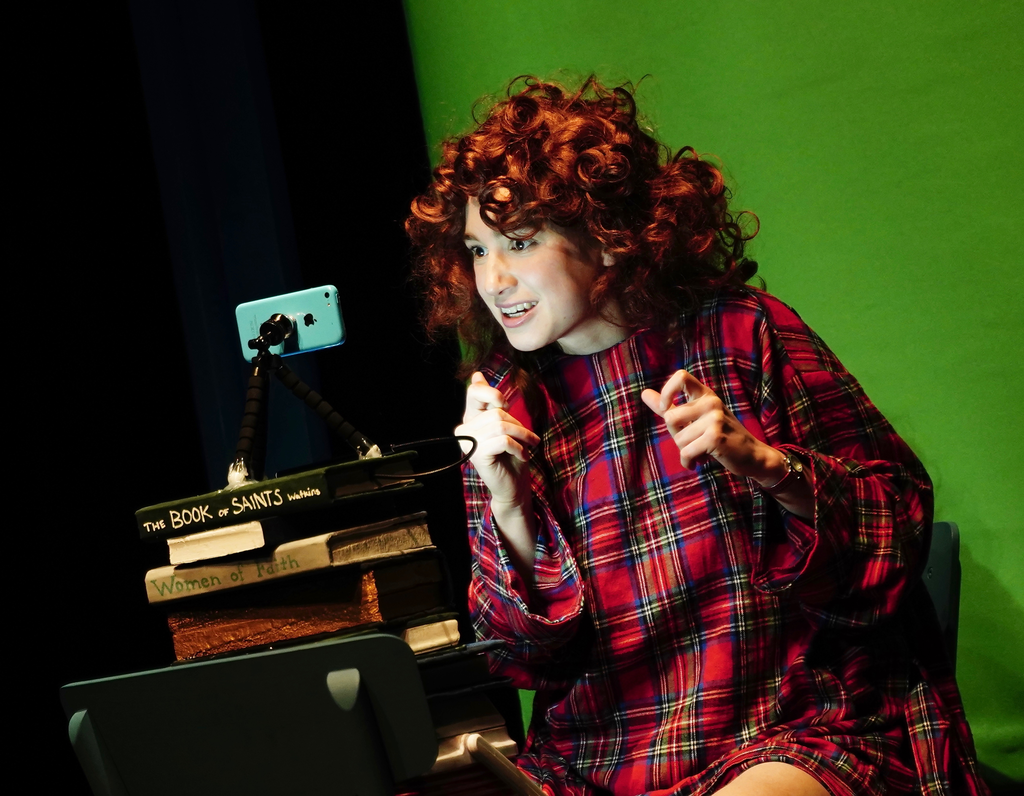
photo credit: Adam Tolbert
“A White Girl’s Guide to International Terrorism” isn’t playing the game you think it’s playing. It feints and reverses, dropping red herrings, deploying ruses. It’s about a white girl, and yet it’s also not at all.
Chelsea Marcantel’s play, a world premiere commission of San Francisco Playhouse’s Sandbox Series, begins as an anatomy of rural white poverty. Blaze (Isabel Langen) is a high school senior in Louisiana’s Gulf Coast whose smarts and ardor have just a couple of outlets: rants about the erosion happening under her feet and a YouTube channel in which she tells the life stories of lesser-known female saints. Her video’s backdrops, music, accents and costumes are all cheesy — to embody a Scot, she wears a bathrobe backward; it’s plaid, like a kilt.
What’s mesmerizing is her enthusiasm and delivery. Langen’s facial muscles seem to inflate, eyes popping, as might an animated character’s. Careening left, then right with each new thought, she almost occupies every corner of her screen at once.
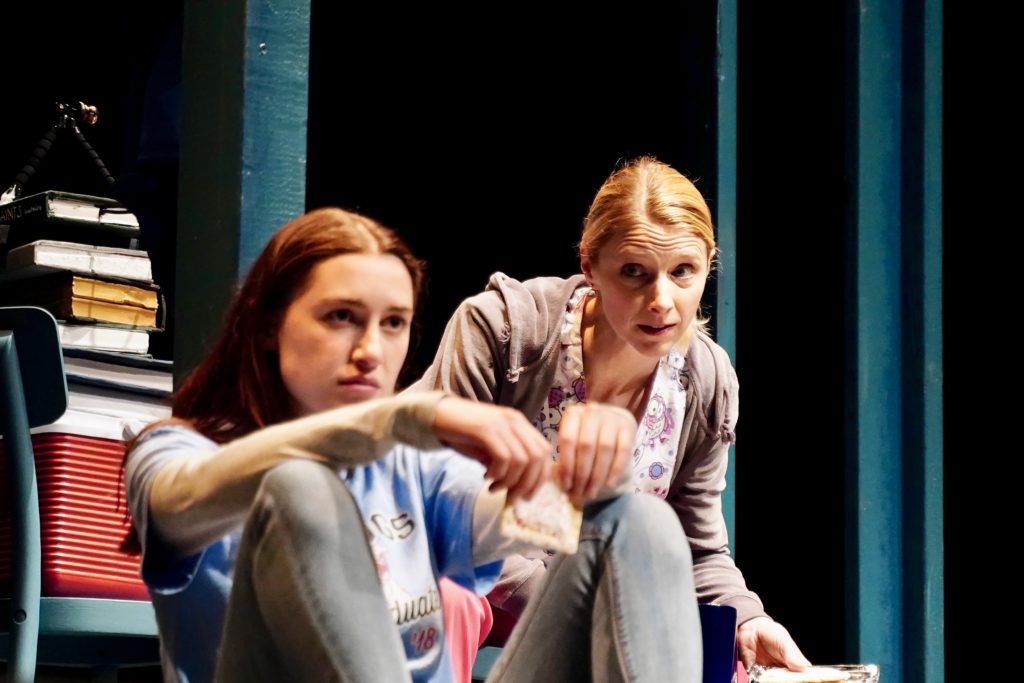
photo credit: Adam Tolbert
Yet the play, which opened at the Creativity Theater on Friday, Feb. 15, closes door upon door for Blaze. College costs too much, and scholarships don’t cover everything, even though her lifelong crush, Gabe (Davied Morales) is about to escape on one. She can’t get more shifts at the Dairy Freeze. Her tough-love mother, Kit (Arwen Anderson), is kicking her out once she turns 18. Even a bus ticket out of town is prohibitively expensive. And where would she go? With what prospects? City people would run her over without looking back.
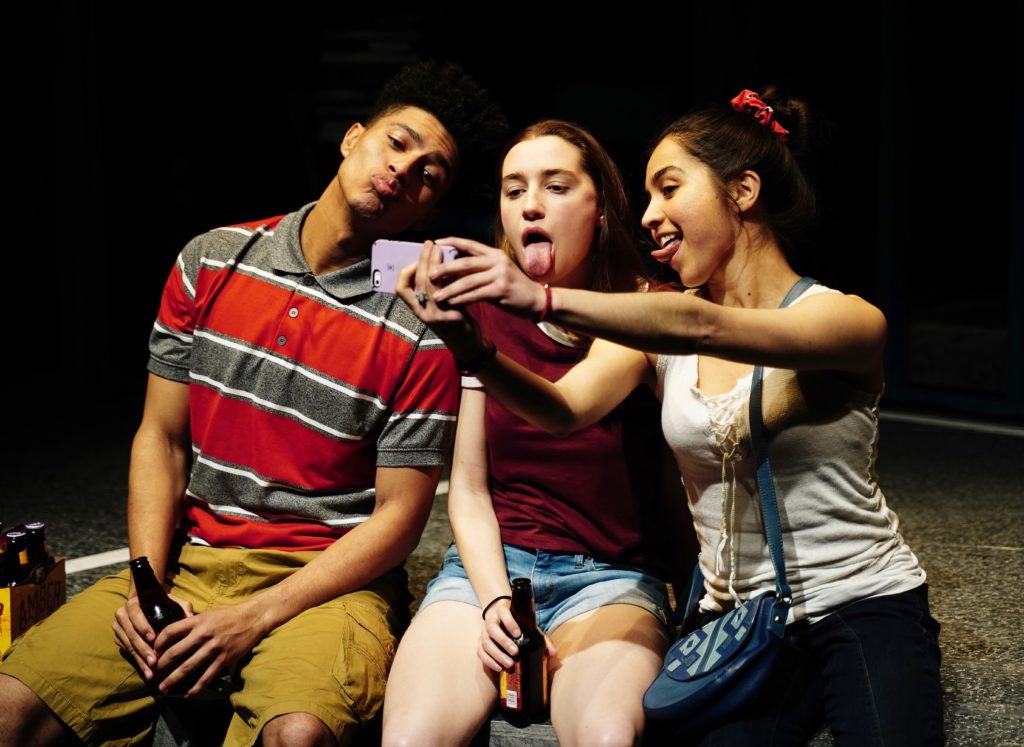
photo credit: Adam Tolbert
As fallen prospects pile up, they deaden. With each new scenario, you start to feel the whoosh of the other shoe dropping long before it actually does. We get it: Life is bleak for Blaze in every possible way. When Gabe, her friend Rowena (Neiry Rojo) and Blaze periodically refer to the opioid epidemic around them — “I told him to do it in the hospital parking lot!” — it feels cavalier, insincere, too much for the play to hold. Marcantel makes her point, that it’s no wonder that Blaze would be susceptible to YouTube comments from a supportive, yet eerie, follower named Wafiya (Liz Sklar), and then keeps making it.
Except Marcantel doesn’t merely set out to indict American society for hollowing out its middle, for accepting and enabling runaway inequality, for devoting so many resources to perceived terrorist threats of a particular ethnicity, nationality and gender while we ignore how poverty, downward mobility and social isolation sow the seeds of radicalization right in our heartland.
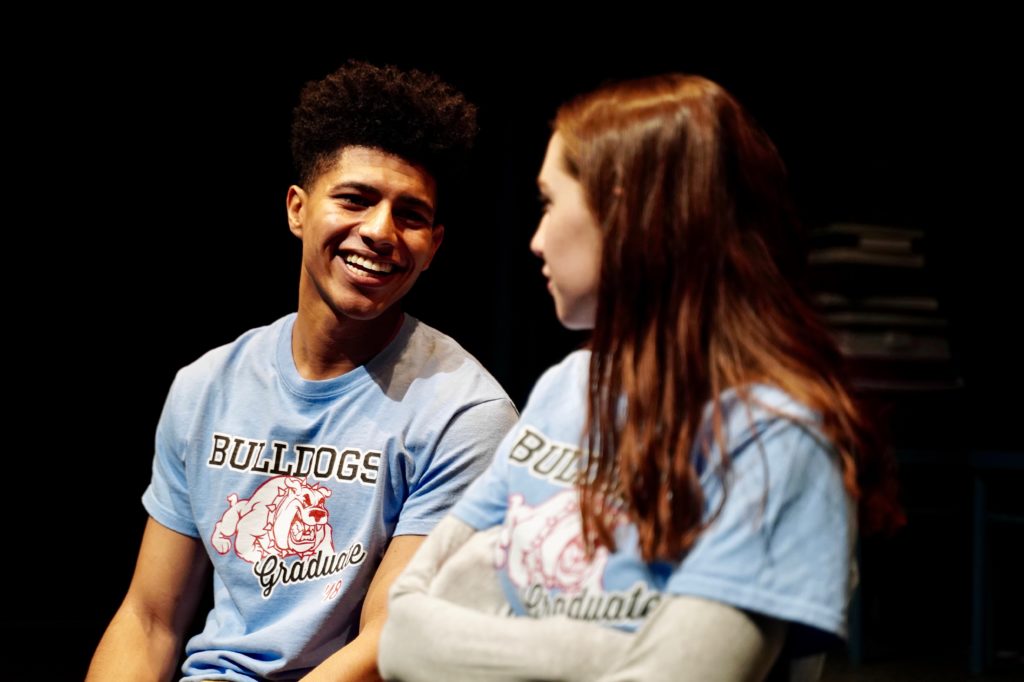
photo credit: Adam Tolbert
Marcantel is also interested in whose stories we tell, whose stories obsess us — a point hinted at early in the play by periodic interpolations of the testimony of an FBI agent (Mohammad Shehata). “The media fetishizes female terrorists,” he says. “They draw eight times the media attention given to men. And media attention is the ultimate goal of a terrorist organization.” Attention isn’t just time in the spotlight. It’s different expectations, different treatment. It’s born of prejudices, and it helps cement those prejudices — and far worse.
If Marcantel shines a penetrating light on ethnic stereotypes that flourish in the safety of darkness, she relies on some credulity-straining plot twists to get there, and she doesn’t always justify her characters’ extreme traits. (Gabe, in particular, is made to be unreasonably perfect, self-aware and wise for an 18-year-old under siege by hormones.)
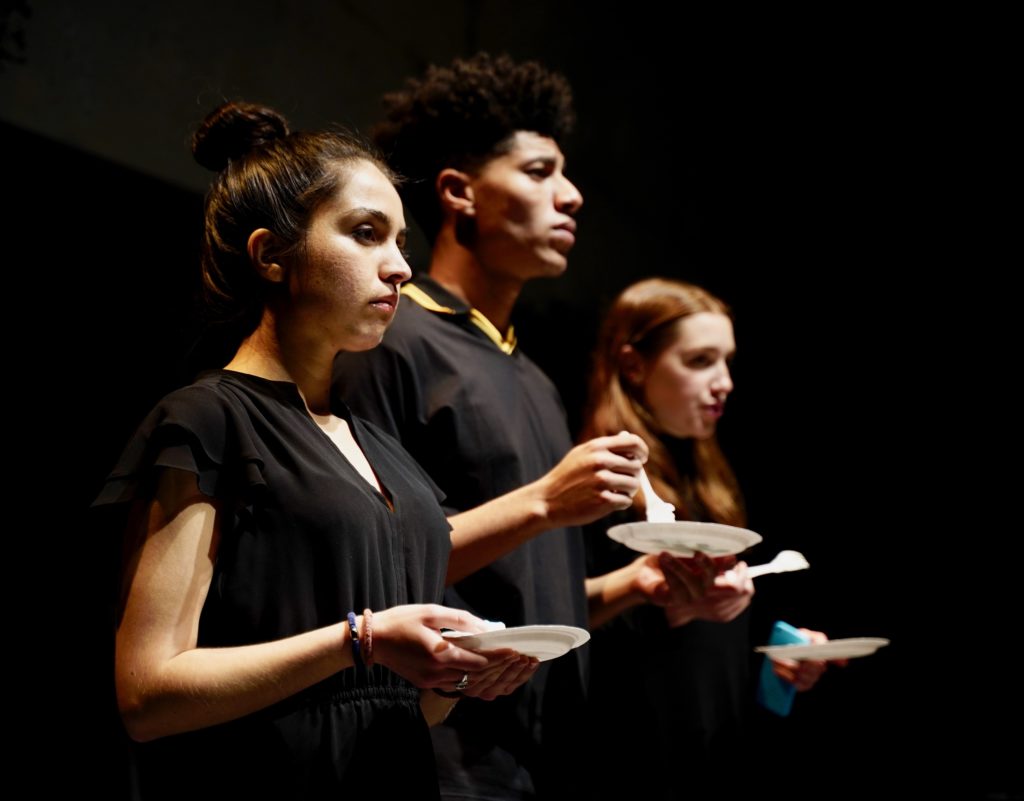
photo credit: Adam Tolbert
But the cast, under director Morgan Green, is crackerjack. Shehata makes lines that could be dry and procedural brim with personality: You see his character’s multilayered arrogance — he dispenses knowledge as if he’s bequeathing his audience a gift — and the purity of his passion for doing his work justly, however warped his vision might be. Anderson makes lines that could sound callous come from deep-rooted grounding in hard-knock realities — and from a place where a too-ready love might fracture the walls Kit needs to survive.
If Langen, a rising star in the Bay Area theater scene, most obviously excels in Blaze’s ebullient videos, she’s just as finely calibrated in softer moments, like when Blaze finally tells Gabe she loves him, blurting it out, then repeating the words more quietly, as if to confirm that she actually said them aloud the first time, to test the waters of this new universe where the truth is out in the open. She gives the fleeting moments of tenderness in Blaze’s life a kind of shy warmth, as if she’s aware of how much love she could give but is too scared to unleash it. That’s the power of youthful energy in “A White Girl’s Guide”; if only we lived in a world that had better channels for it.






